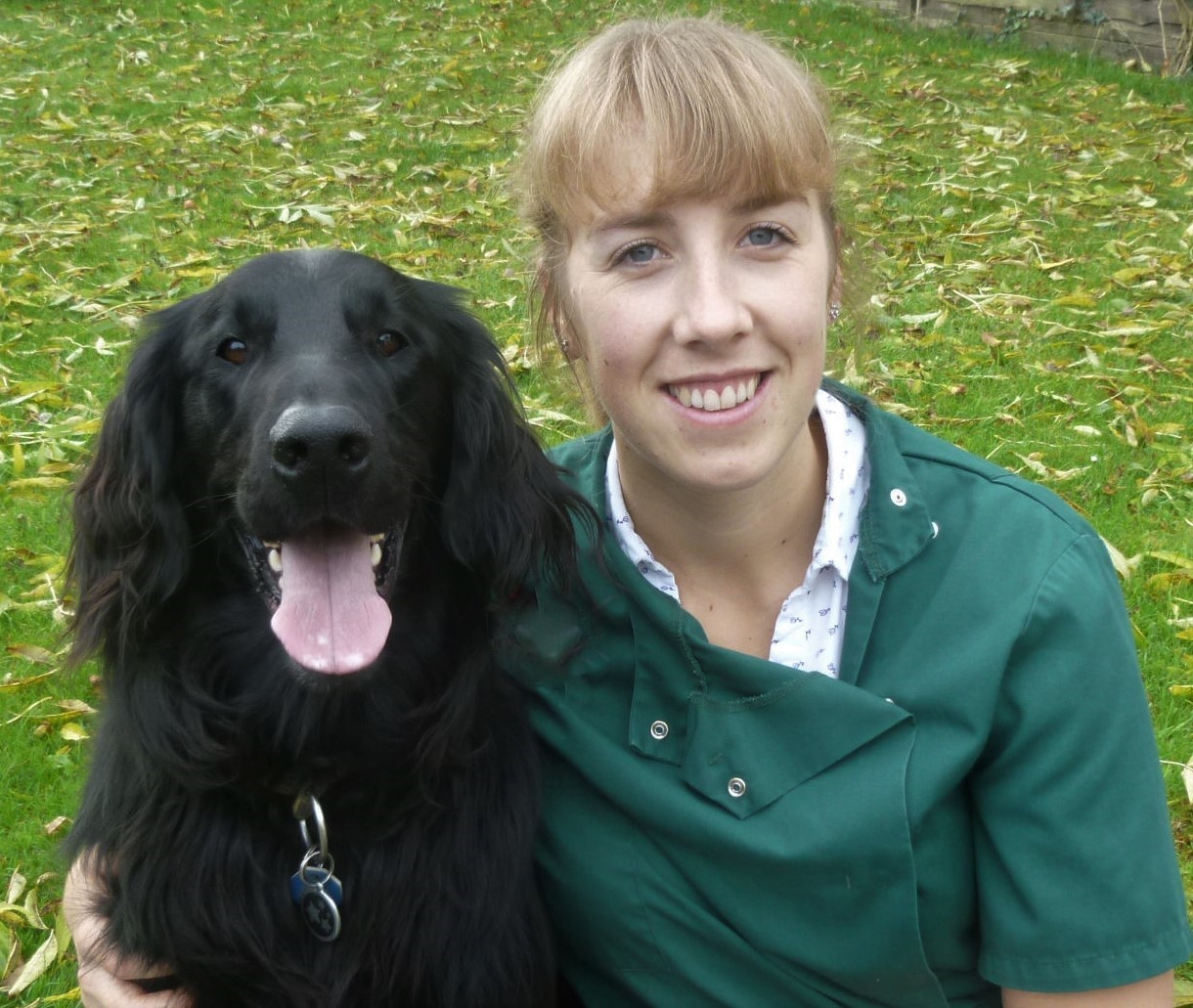IBD in cats: What is it and how is it treated?
What is IBD in cats? Our vet looks at inflammatory bowel disease and its treatment in more detail
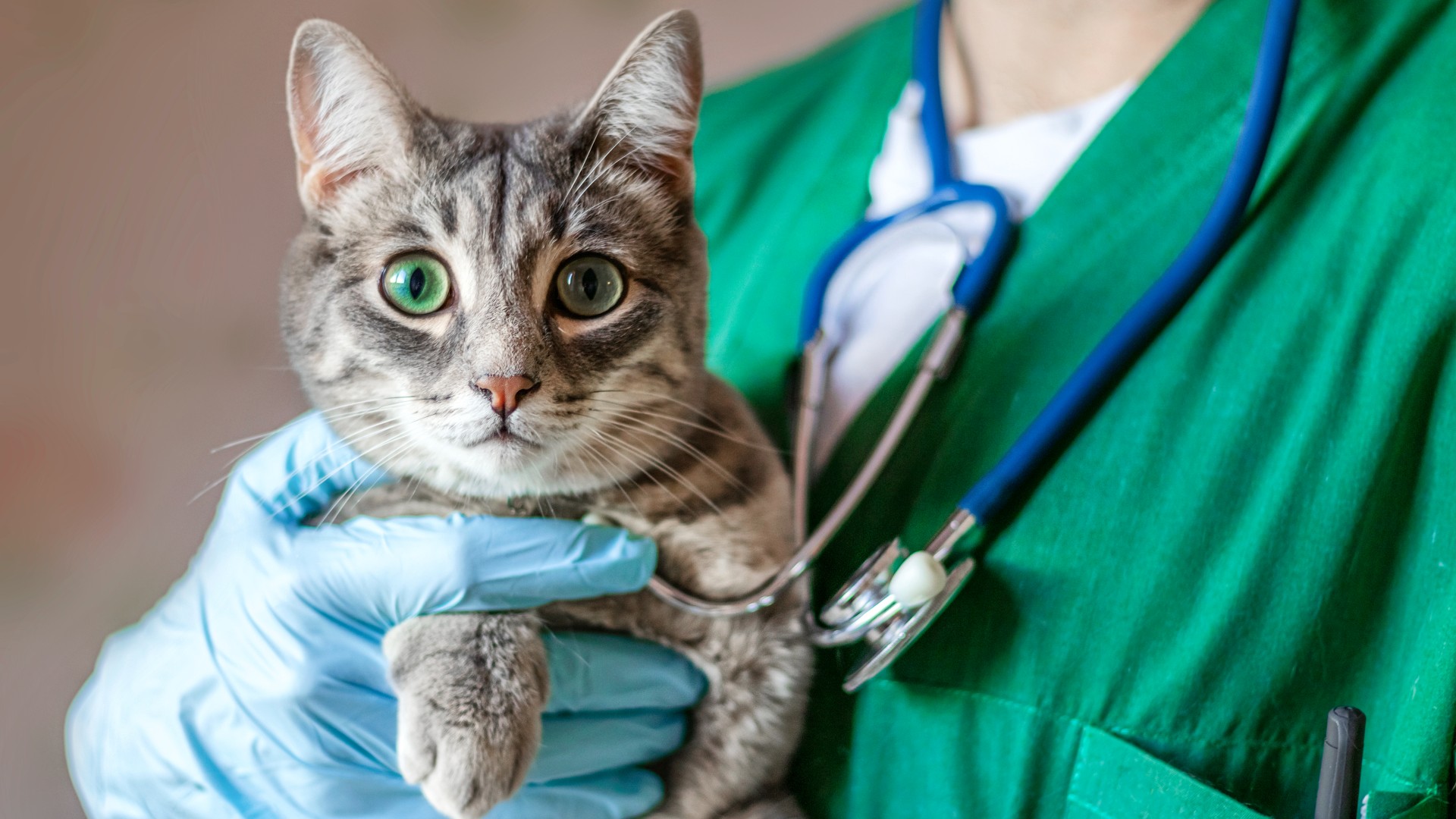
IBD in cats is a condition that is frequently diagnosed by vets. IBD stands for Inflammatory Bowel Disease and is an ailment that causes marked inflammation of the gastrointestinal tract (stomach and intestines).
As with people, IBD in cats can lead to marked digestive upset. You might be wondering if your own cat is suffering from this condition, however, it’s worth bearing in mind that multiple other issues can cause diarrhea and vomiting in cats. It’s always best to visit your vet for advice. Let’s explore IBD in more detail as well as what you can do if your pet is diagnosed.
- Best cat food: Fabulous feasts to feed your feline Best wet cat food
- Best dry cat food: Ensure your kitty enjoys a healthy diet
- Best wet cat food: Mouth-watering dishes for your feline friend
What is IBD in cats?
IBD stands for inflammatory bowel disease and is a chronic (ongoing) condition. Inflammatory cells invade the walls of the digestive system, causing thickening of the intestine and stomach which affects your cat’s ability to absorb nutrients from his food.
The exact cause of IBD is unclear but genetics, diet, bacterial levels in the digestive tract and other environmental factors are thought to contribute to the condition. This is also why preventing IBD in cats in the first place is also tricky.
What are the symptoms of IBD?
IBD is most commonly found in middle-aged or older cats, though any age could potentially be affected. Depending on where in the digestive tract is most affected, common symptoms may include:
- Chronic (ongoing) diarrhoea
- Bloody stools
- Vomiting
- Weight loss
- Loss of appetite
- Lethargy
How is feline IBD diagnosed?
Your vet will start by examining your cat and will check their weight, feel their abdomen for any abnormalities as well as record their temperature. If they have concerns about your pet, then they may advise blood samples next.
This will help to rule out other causes of digestive upset (such as hyperthyroidism), but may also give clues if there are elevations in circulating inflammatory cells. Faecal samples can be useful to rule out parasites and other infectious diseases. A strict dietary food trial may be recommended to rule out food allergies.
Get the best advice, tips and top tech for your beloved Pets
The next steps may include diagnostic imaging such as x-rays and ultrasound scans to look for thickening of the digestive tract. However definitive diagnosis can only be made with a biopsy, sending some tissue from the digestive tract to the lab for analysis.
This can be done via an endoscopic exam (passing a small camera through your cat's mouth or rectum) or by abdominal surgery, the latter allows for other samples to be taken such as liver biopsies if other disease processes need to be ruled out.
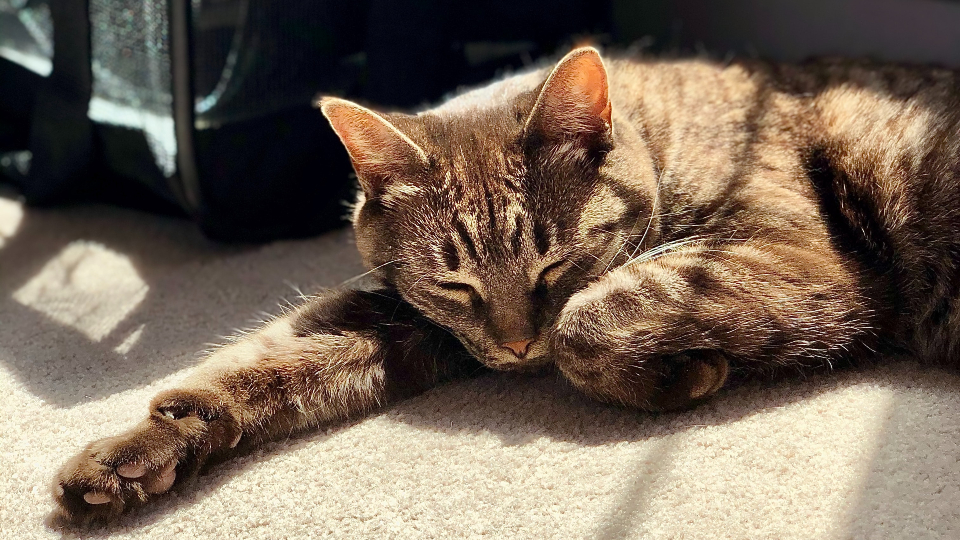
Treating IBD in cats
Treatment depends on the degree of severity of your cat’s condition and different things are helpful for different cats. For most cats, a combination of eliminating any possible complicating parasites (through anti-parasitic treatments) and a change in diet can be helpful.
Other cats may require medication such as antibiotics or anti-inflammatories (steroids). In some cases, probiotics may be beneficial and a supplement with B vitamins if there is a proven deficiency.
There is no cure for IBD in cats, treatments are aimed at improving and helping to control the signs of the disease. Your vet will guide you through how to care for a cat with IBD, as each case is individual.
What food is best for cats with IBD?
Your vet will be able to guide you on the diets they recommend for their IBD patients. The best diet for IBD tends to be formulated for sensitive stomachs which are low in fat and easy to digest or a hypoallergenic diet.
These are usually made using proteins your cat has never eaten before like duck, rabbit or venison. Wet or dry versions of many of these diets are usually available. It is important to make sure your cat sticks rigorously to his diet, as other foods may trigger digestive upset. Bear in mind that it can take several weeks on his new diet before symptoms improve.
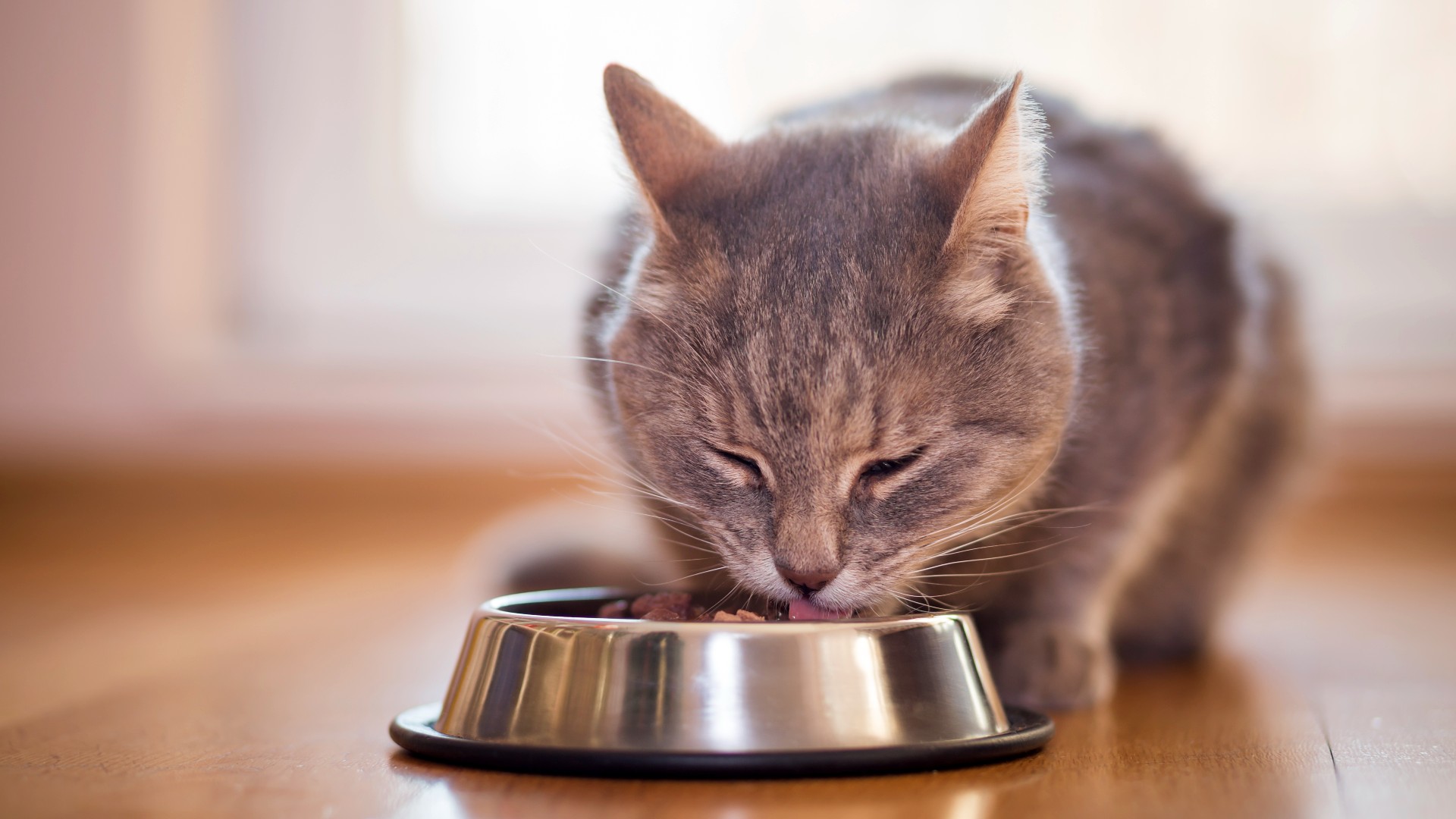
What is the difference between IBS and IBD in cats?
IBD stands for inflammatory bowel disease, whereas IBS stands for irritable bowel syndrome. IBD is an autoimmune condition, whereas IBS is a form of stress-induced colitis, caused by the colon becoming overstimulated during times of stress and anxiety. IBD is controlled with nutritional therapy and medication, whereas IBS needs stress management.
Can IBD in cats cause constipation?
Constipation is less typical than diarrhoea in cats suffering from IBD. Some cats may be seen straining excessively and not passing any stools, but this is usually due to inflammation causing an increased urgency to try and defecate. Speak to your vet if you suspect your cat is constipated.
Can a cat recover from IBD?
Unfortunately, IBD is a chronic condition meaning that there is no cure. Any treatments are aimed at the long-term management of the illness. Many cats can experience an improvement in their symptoms with the correct diet and medication, however.
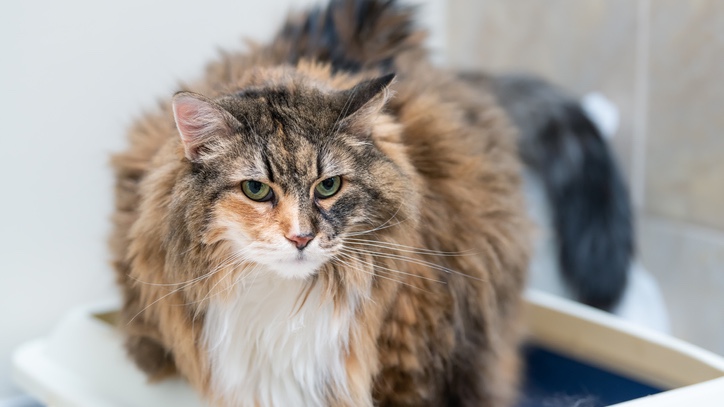
When to euthanize a cat with IBD
Sadly in some cases, your cat’s quality of life may start to become adversely affected, especially if his condition is not well managed.
Though most cats with IBD have a good prognosis, life expectancy is variable, particularly as many are diagnosed in their later years, with or without other health conditions at the same time. If your cat’s symptoms cannot be controlled, then discuss this with your vet who will be able to counsel you on euthanasia as a potential option to end suffering.
Conclusion
IBD is a condition that is seen most commonly in middle-aged cats and older, causing diarrhea, vomiting and weight loss. While the condition cannot be cured it can usually be improved through diet and medication. Speak to your vet for advice if your cat is showing any symptoms of IBD.
Looking for more health-related content to help ensure your feline friend stays fit and well? Our guide to dehydration in cats reveals the most common reasons why cats stop drinking and what to do about it.
Rebecca is a veterinary surgeon who graduated from the Royal Veterinary College in London in 2009. She enjoys medicine in particular and she is proud to have achieved a BSAVA postgraduate certificate in small animal medicine (with commendation) from Nottingham Trent University in 2021.
She has a wealth of experience in first opinion small animal practice, having done a mixture of day-to-day routine work, on-call emergency duties and managerial roles since 2009.
She writes on various feline and canine topics for the Veterinary Content Company and a freelance basis, including behavior, nutrition, and health. Outside of work and writing she enjoys walking her own dog, spending time with her young family and baking!
